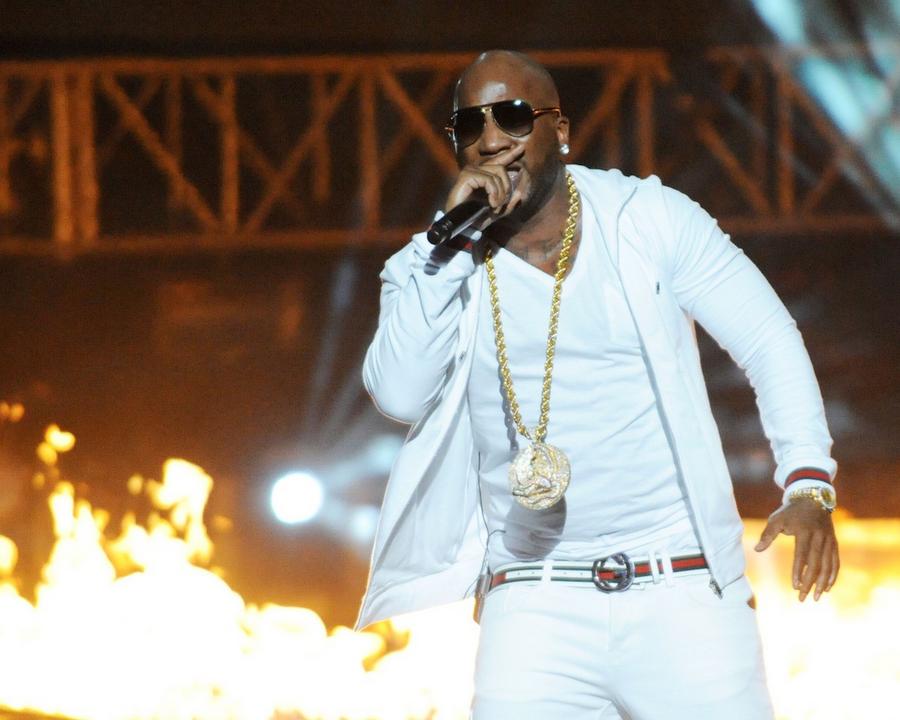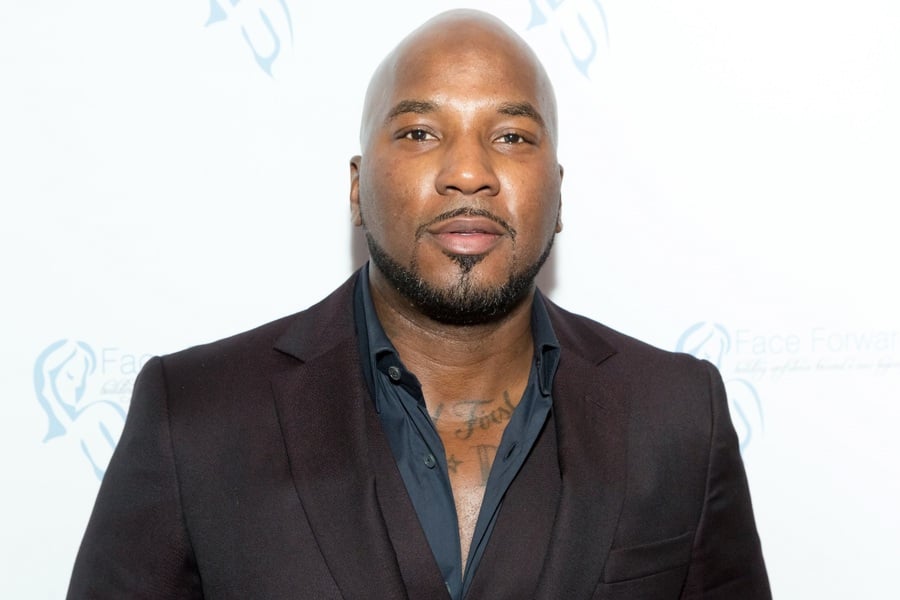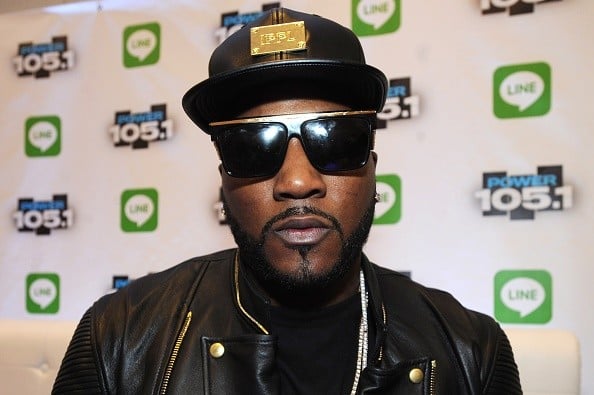What is Young Jeezy's Net Worth?
Young Jeezy is an American rapper who has a net worth of $16 million. Young Jeezy, otherwise known simply as "Jeezy," was most popular during the early to late 2000s. During this time, he carved out a name for himself and emerged as one of the most influential figures in Southern hip-hop. The rapper is known for his unique, raspy style of vocal delivery and his role in shaping trap music into a dominant force.
His debut album, "Let's Get It: Thug Motivation 101," released in 2005, was a commercial success and remains a classic, packed with anthems such as "Soul Survivor" featuring Akon. This album, with its authentic tales of street life and hustle, cemented his reputation as the "Snowman" and became a cultural touchstone for a generation.
Jeezy's influence didn't stop at his debut. Over the years, he consistently released chart-topping albums, with hits like "Put On" featuring Kanye West and "I Luv It." His music offers a gritty reflection of life in the streets but also underscores themes of perseverance, resilience, and triumph over adversity. Beyond his solo career, Jeezy has been a collaborative powerhouse, working with hip-hop heavyweights such as Jay-Z, Rick Ross, and Lil Wayne.
Outside of music, Jeezy has proven himself to be a savvy businessman. He was an investor and ambassador for Tequila Avión, reportedly (but never confirmed) earning a significant windfall when the brand was acquired by Pernod Ricard. He has landed multimillion-dollar endorsement deals, most notably including a partnership with Adidas. Together, these ventures have helped solidify Jeezy's status not just as a rap star, but as an entrepreneur with lasting influence.
Early Life
Young Jeezy was born Jay Wayne Jenkins on September 27, 1977, in Columbia, South Carolina. His parents were not married, and they separated soon after his birth, leaving Jenkins to grow up in the care of various relatives. Though he has described this arrangement as a negative experience, his mother remained a significant influence throughout his childhood.
Jenkins grew up in poverty, which shaped both his worldview and his artistic perspective. Music quickly became one of the few positive outlets in his life, offering a sense of escape and purpose. At the same time, the allure of the streets was hard to resist. He became associated with the Crips and engaged in illegal activities such as selling black-market cellphones and narcotics.
When Jenkins was arrested for possession of drugs, his young age kept him from prison. Instead, he was sent to the Youth Challenge Academy, a military-style boot camp in Georgia. The experience proved transformative. After completing the program, Jenkins resolved to shift away from crime and instead pursue legitimate business opportunities. That decision set him on the path to entrepreneurship and, ultimately, a career in music.

Chris McKay/Getty Images
Early Career
Eager to carve out a place in the industry, Jenkins founded his own record label imprint, Corporate Thugz Entertainment, which would later become CTE World. Though initially focused on the business side, he soon realized that running a label involved more paperwork than creativity. With a sharp ear for music and a natural gift for performance, he decided to step into the spotlight himself.
Under the stage name Lil J, he independently released his debut album, "Thuggin' Under the Influence," in 2001. The project attracted attention thanks to collaborations with artists like Lil Jon and Kinky B. Building on that momentum, he released "Come Shop Wit Me," a double-disc set that combined tracks from his debut with new, unreleased material. Both projects were released through his own label, giving Jenkins his first taste of success and credibility in the rap world.

Greg Doherty/Getty Images
Breakthrough
Rebranding himself as "Young Jeezy," Jenkins made a major move in 2004 when he joined the Atlanta rap group Boyz n da Hood, who were signed to Bad Boy Records. The group released their self-titled album in 2005, but Jeezy's charisma quickly set him apart as a solo star on the rise.
That same year, his demo reached Def Jam executive Shakir Stewart, who passed it along to L.A. Reid. Recognizing Jeezy's potential, Def Jam signed him, giving him the backing of a major label. His debut studio album, "Let's Get It: Thug Motivation 101," dropped in 2005, debuting at No. 2 on the Billboard 200 and selling 172,000 copies in its first week. Featuring tracks like "Soul Survivor" with Akon, the album became a landmark release in Southern hip-hop and solidified Jeezy's gritty, motivational style.
He followed with "The Inspiration" in 2006, which debuted at No. 1 on the Billboard 200 with over 350,000 first-week sales. His third album, "The Recession" (2008), also topped the charts and earned a Grammy nomination, with contributions from Kanye West and Nas. The album's politically charged themes resonated during the 2008 financial crisis, further cementing his reputation as "the voice of the streets."
In 2009, he shortened his name to "Jeezy" and announced plans for "Thug Motivation 103." While the album faced delays, he stayed relevant through hit collaborations and singles, including the Lil Wayne-assisted track "Ballin." When "Thug Motivation 103: Hustlerz Ambition" finally dropped in December 2011, it debuted at No. 3 on the Billboard 200 and sold 233,000 units in its first week.
$2 Million Cash Album Cover
In July 2005, Jeezy released his major label debut, "Let's Get It: Thug Motivation 101." The album cover famously shows him surrounded by boxes overflowing with cash, with the back cover featuring him calmly counting stacks of bills. Unlike most staged photo shoots, the money was real—about $2 million in actual cash.
According to Jeezy, the original plan was to use fake bills supplied by the record label. When he arrived at the shoot and saw the prop money, he balked. "I'm like … hold up man. I can't get down like that … We gotta put some real money in the boxes man. I can't be sitting here with no fake money on my album cover," he recalled.
When Def Jam executives asked where he planned to find real money on such short notice, Jeezy made a quick phone call. Within 20 minutes, his friends showed up carrying several duffel bags containing roughly $1.8 million in cash. It still wasn't enough to completely fill the boxes, so one of his crew casually went to his car trunk and retrieved the rest. The result was one of hip-hop's most iconic—and authentic—album covers, a snapshot of Jeezy's street credibility at the height of his rise.

Brad Barket/Getty Images
Later Albums and Retirement
Jeezy remained a steady presence in hip-hop throughout the 2010s. He released mixtapes that kept him connected to the streets while touring with top artists. In 2014, he returned with "Seen It All: The Autobiography," which debuted at No. 4 on the Billboard 200 and featured the Jay-Z collaboration "Seen It All."
Between 2016 and 2019, Jeezy released three more albums: "Trap or Die 3" (2016), "Pressure" (2017), and "TM104: The Legend of the Snowman" (2019), which he framed as his final installment in the "Thug Motivation" series. In 2019, he announced his retirement from music, signaling a shift toward business ventures, investments, and philanthropic projects. Still, his influence on trap music and Southern hip-hop remains undeniable.
CTE World and YG
Jeezy's influence extended beyond his own music when he began developing artists under his Corporate Thugz Entertainment label, later known as CTE World. In 2013, he signed Compton rapper YG through a joint venture with Def Jam Records. That partnership led to YG's breakout album, "My Krazy Life," released in 2014. The project debuted at No. 2 on the Billboard 200 and featured the hit single "My Nigga" with Jeezy and Rich Homie Quan, which went platinum and reached the Top 20 on the Billboard Hot 100.
By guiding YG's early career, Jeezy not only expanded his business presence in the industry but also established himself as a tastemaker with an eye for talent. Though YG later moved on from CTE, Jeezy's role in launching his mainstream success added another layer to his reputation as both a rapper and an executive.
Avión Tequila
Outside of music, one of Jeezy's most lucrative ventures came through his involvement with Tequila Avión. In 2013, he joined founder Ken Austin as both a brand ambassador and an investor, helping promote the high-end tequila to multicultural markets. Jeezy frequently referenced Avión in his lyrics and appearances, giving the brand credibility in hip-hop culture.
The gamble paid off in 2018 when global spirits giant Pernod Ricard acquired the remaining stake in Avión. While financial details were never made public, Jeezy later confirmed that the deal was substantial, calling it one of the biggest moves of his career. The sale provided him with a major windfall and cemented his reputation as a savvy businessman who could succeed outside of music.
Personal Life & Jeannie Mai Divorce
Jeezy began dating television personality Jeannie Mai, co-host of "The Real," around 2018. The couple married in March 2021 in an intimate ceremony at their Atlanta home and later welcomed a daughter.
In September 2023, Jeezy filed for divorce. Court filings soon revealed that Mai had requested enforcement of specific clauses in their prenuptial agreement, particularly those addressing infidelity. Mai alleged that Jeezy had been unfaithful during the marriage, citing romantic text messages, social media exchanges, and video calls, which she claimed triggered financial penalties outlined in their prenup. Jeezy denied the allegations.
In March 2024, Mai filed a petition challenging the validity of the prenup itself. She claimed that Jeezy had pushed for the agreement just five days before their wedding, leaving her with little time for negotiation. Her legal team argued that the process lacked full disclosure of finances and pressured her into signing under unfair circumstances. The divorce proceedings drew widespread media attention, adding another chapter of public scrutiny to Jeezy's otherwise private personal life.
Real Estate
In 2007, Jeezy paid $1.32 million for a penthouse in Atlanta. He sold this unit in 2014 for $950,000. In 2014, he paid $1.5 million for a 9,000-square-foot home in Johns Creek, Georgia. In 2016, he paid $685,000 for a three-story house in downtown Atlanta. He subsequently converted the property into a studio compound, which he dubbed "The Embassy."
/2009/11/Young-Jeezy.jpg)
/2009/11/Gucci-Mane.jpg)
/2009/10/Mannie-Fresh.jpg)
/2009/10/Fabolous.jpg)
/2021/09/YG.jpg)
/2009/10/Rick-Ross-1.jpg)
:strip_exif()/2009/09/P-Diddy.jpg)
/2020/02/Angelina-Jolie.png)
/2009/09/Brad-Pitt.jpg)
/2020/06/taylor.png)
/2009/09/Jennifer-Aniston.jpg)
/2020/04/Megan-Fox.jpg)
/2020/01/lopez3.jpg)
:strip_exif()/2015/09/GettyImages-476575299.jpg)
/2009/09/Cristiano-Ronaldo.jpg)
/2009/11/George-Clooney.jpg)
/2019/04/rr.jpg)
/2009/11/Young-Jeezy.jpg)
/2009/11/Gucci-Mane.jpg)
/2009/10/Fabolous.jpg)
/2009/09/kanye.jpg)
/2014/08/GettyImages-516463040.jpg)
/2016/10/GettyImages-610736910.jpg)
/2020/02/drake-net-worth.jpg)
/2020/01/akon2-1.jpg)
/2018/03/GettyImages-821622848.jpg)